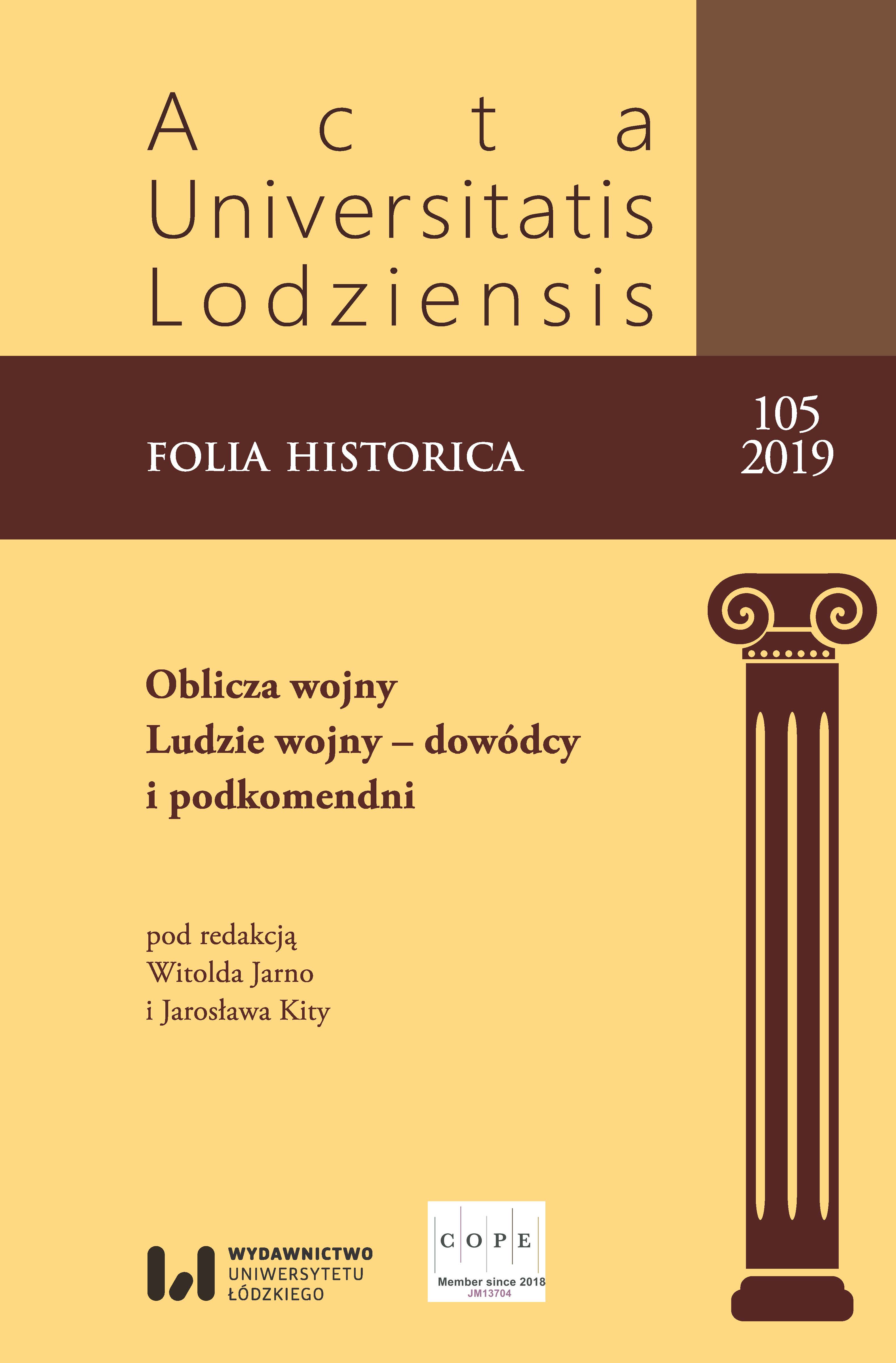Aethelflaed – the woman that defended England against the Vikings
DOI:
https://doi.org/10.18778/0208-6050.105.02Keywords:
Aethelflaed, Alfred the Great, Danelaw, Edward the Elder, VikingsAbstract
Aethelflaed (ca. 870–918) was the daughter of Alfred the Great, king of Wessex. The times in which she lived were for the future England extremaly difficult. Though in the decisive year of 878 her father defeated one of the Viking leaders, Guthrum, in the battle of Edington and this victory brought the Anglo-Saxons a couple of years of peace, the northern and eastern part of the country was still under Viking rule. The primarily purpose of this paper is to present the achievements of Aethelflaed. No doubt she inherited her father’s character and determination to completely eliminate the Vikings from England. After the passing of her husband, ealdorman Aethelred of Mercia, she alone ruled Mercia, which for a women was quite unusual in her times. Together with her brother Edward the Elder she continued the construction of burhs, a project started by Alfred. Among other victories in 917 she managed to recapture Derby, one of the Five Boroughs of the Danelaw. Unfortunately, Aethelflaed’s sudden death in 918 stopped these successes. However, the memory of her deeds survived generations.
Downloads
References
Annals of Ireland: Three Fragments, ed. and trans. J. O’Donovan, Dublin 1860.
Google Scholar
English Historical Documents, vol. I (c. 500–1042), ed. D. Whitelock, 2nd ed., London 1979.
Google Scholar
Henry, Archdeacon of Huntingdon, Historia Anglorum: The History of the English People, ed. and trans. D. Greenway, Oxford 1996.
Google Scholar
Smyth A.P., The Medieval Life of King Alfred the Great. A Translation and Commentary on the Text Attributed to Asser, Basingstoke 2002.
Google Scholar
William of Malmesbury’s Chronicle of the Kings of England, ed. and trans. J.A. Giles, London 1847.
Google Scholar
Abels R., Alfred the Great: War, Kingship and Culture in Anglo-Saxon England, London 1998.
Google Scholar
Bailey M., Ælfwynn, Second Lady of the Mercians, [w:] Edward the Elder, 899–924, eds N.J. Higham, D.H. Hill, London 2001, s. 112–127.
Google Scholar
Bandel B., The English Chroniclers’ Attitude Toward Women, „Journal of the History of Ideas” 1955, vol. XVI, No. 1, s. 113–118.
Google Scholar
Charles-Edwards T.M., Wales and Mercia, 613–918, [w:] Mercia. An Anglo-Saxon Kingdom in Europe, eds M.P. Brown, C.A. Farr, London 2001, s. 89–105.
Google Scholar
Gransden A., Historical Writing in England c. 550–c. 1307, London 1974.
Google Scholar
Heighway K., Gloucester and the New Minster of St Oswald, [w:] Edward the Elder, 899–924, eds N.J. Higham, D.H. Hill, London 2001, s. 102–111.
Google Scholar
Irvine S., The Anglo-Saxon Chronicle, [w:] A Companion to Alfred the Great, eds N.G. Discenza, P.E. Szarmach, Leiden 2015, s. 344–367.
Google Scholar
Loyn H.R., Anglo-Saxon England and the Norman Conquest, 2nd ed., Harlow 1991.
Google Scholar
Stafford P., ‘The Annals of Æthelflæd’: Annals, History and Politics in Early Tenth-Century England, [w:] Myth, Rulership, Church and Charters. Essays in Honour of Nicholas Brooks, eds J. Barrow, A. Wareham, Aldershot 2008, s. 101–116.
Google Scholar
Stafford P., Political Women in Mercia, Eighth to Early Tenth Centuries, [w:] Mercia. An Anglo-Saxon Kingdom in Europe, eds M.P. Brown, C.A. Farr, London 2001, s. 35–49.
Google Scholar
Stafford P., The King’s Wife in Wessex 800–1066, „Past and Present” 1981, vol. XCI, s. 3–27.
Google Scholar
Stenton F., Anglo-Saxon England, 3rd ed., Oxford 1971.
Google Scholar
The Oxford Illustrated History of Medieval England, ed. N. Saul, Oxford 1997.
Google Scholar
Wainwright F.T., The Chronology of the ‘Mercian Register’, „The English Historical Review” 1945, vol. LX, No. 238, s. 385–392.
Google Scholar
Downloads
Published
How to Cite
Issue
Section
License

This work is licensed under a Creative Commons Attribution-NonCommercial-NoDerivatives 4.0 International License.











